The collapse of El Salvador's bitcoin dream
Central American nation rolls back its controversial, world-first cryptocurrency laws
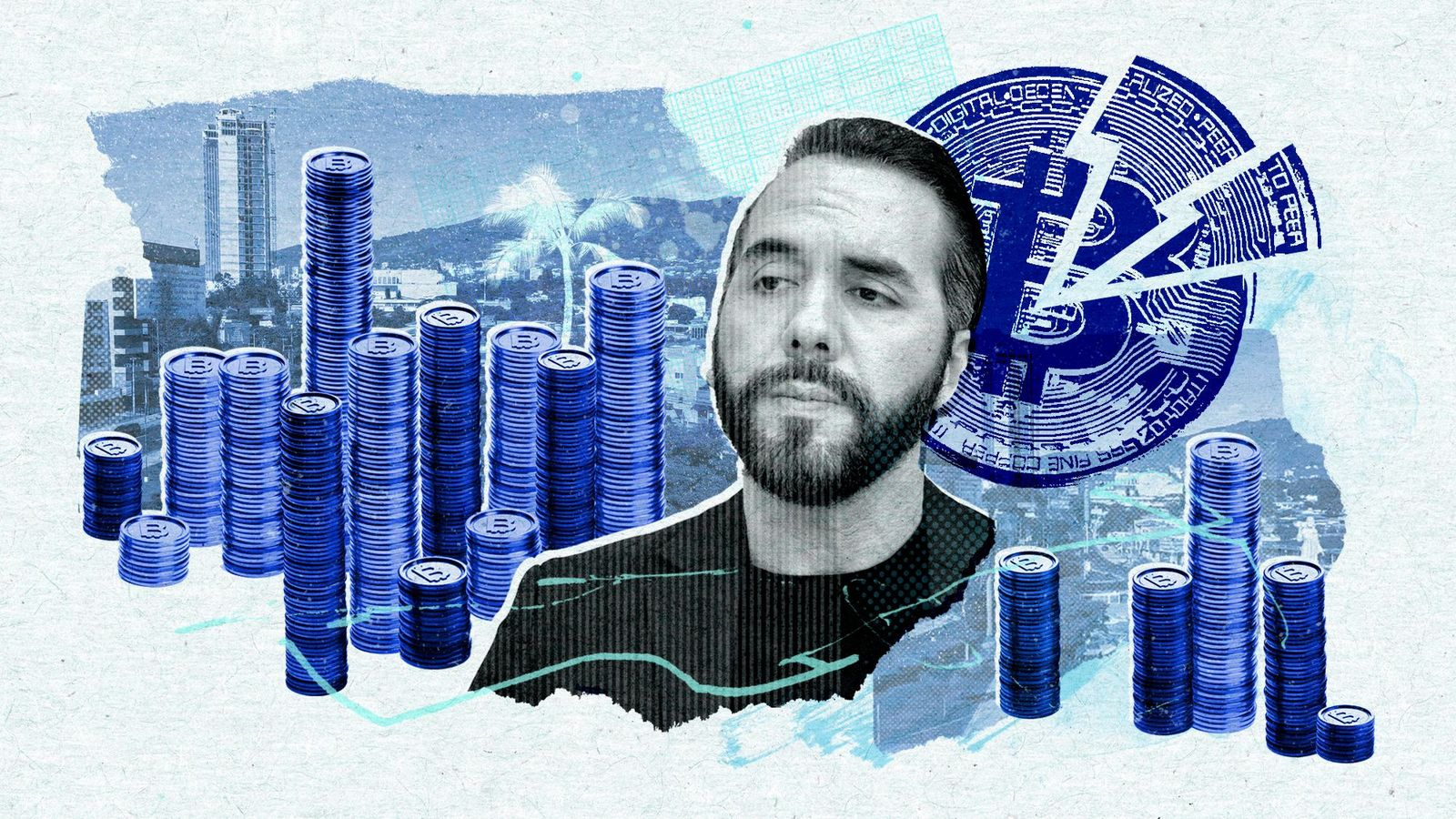
A free daily email with the biggest news stories of the day – and the best features from TheWeek.com
You are now subscribed
Your newsletter sign-up was successful
In 2021, El Salvador caught the world's attention by becoming the first country to make cryptocurrency legal tender, alongside the US dollar.
Last December, as the price of bitcoin broke $100,000 (£77,765) for the first time, the young president Nayib Bukele posted on social media that the Central American nation's crypto holdings had more than doubled in value. But now – as the price for securing a $1.4 billion (£1.1 billion) loan deal from the International Monetary Fund – the country has had to roll back its controversial bitcoin policies.
Salvadoran businesses are now free to decide whether or not to accept bitcoin, and taxes are no longer payable in the cryptocurrency. "The potential risks of the bitcoin project will be diminished significantly, in line with Fund policies," the IMF said. Effectively, bitcoin's days as legal tender in El Salvador are over.
The Week
Escape your echo chamber. Get the facts behind the news, plus analysis from multiple perspectives.

Sign up for The Week's Free Newsletters
From our morning news briefing to a weekly Good News Newsletter, get the best of The Week delivered directly to your inbox.
From our morning news briefing to a weekly Good News Newsletter, get the best of The Week delivered directly to your inbox.
'Cryptocurrency paradise'
Bukele's embrace of bitcoin was part of an attempt to "rebrand the tiny and impoverished" nation as a "surfing and cryptocurrency paradise", said the Financial Times. He announced plans to build a "Bitcoin City" in the jungle, "powered by geothermal energy on the slopes of a volcano".
The president claimed cryptocurrency would bring the "70% of Salvadorans who do not use traditional banks into the financial system", said France24. "Swatting away warnings about volatility risks", he ploughed an "undisclosed amount of public money into cryptocurrencies".
But the IMF always opposed Bukele's adoption of bitcoin, said the BBC, and warned that it would be an obstacle to any financial assistance. For a long time, the Salvadoran economy has "teetered on the edge of default", as the IMF stayed "wary" of lending to the country while the volatile currency – with its "potential use in money-laundering and other crimes" – was legal tender, said The Economist.
'More costs than benefits'
El Salvador is still "a focal point for the global bitcoin community", said Forbes. But the mood is now "somewhat subdued" among crypto enthusiasts, one local journalist told the news site.
A free daily email with the biggest news stories of the day – and the best features from TheWeek.com
"A lot of international bitcoiners moved to El Salvador for the Bitcoin Law; some Salvadorans returned," said Joe Nakamoto. "Now, doubt about the country's future with regards to bitcoin has crept in."
But bitcoin's "demotion may be more of a blessing than a concession", said The Economist. Crypto has brought El Salvador "more costs than benefits". The much-promised investment and tourism "have been small beer", while financial gains have been "meagre at best", because the currency "never really caught on". According to a poll published in January by Universidad Centroamericana, 92% of Salvadorans didn't use it at all last year.
Overall, the policy has cost $375 million (£291 million), according to estimates by rating agency Moody's – a sum that "far exceeds the profits on bitcoin holdings, which could still evaporate". There is still no Bitcoin City.
Bukele's "obsession with cryptocurrency has done little to ease El Salvador's economic woes", said the magazine. He is "just the latest crypto-utopian to see his wild ideas dissolve on contact with reality".
Harriet Marsden is a senior staff writer and podcast panellist for The Week, covering world news and writing the weekly Global Digest newsletter. Before joining the site in 2023, she was a freelance journalist for seven years, working for The Guardian, The Times and The Independent among others, and regularly appearing on radio shows. In 2021, she was awarded the “journalist-at-large” fellowship by the Local Trust charity, and spent a year travelling independently to some of England’s most deprived areas to write about community activism. She has a master’s in international journalism from City University, and has also worked in Bolivia, Colombia and Spain.
-
 6 of the world’s most accessible destinations
6 of the world’s most accessible destinationsThe Week Recommends Experience all of Berlin, Singapore and Sydney
-
 How the FCC’s ‘equal time’ rule works
How the FCC’s ‘equal time’ rule worksIn the Spotlight The law is at the heart of the Colbert-CBS conflict
-
 What is the endgame in the DHS shutdown?
What is the endgame in the DHS shutdown?Today’s Big Question Democrats want to rein in ICE’s immigration crackdown
-
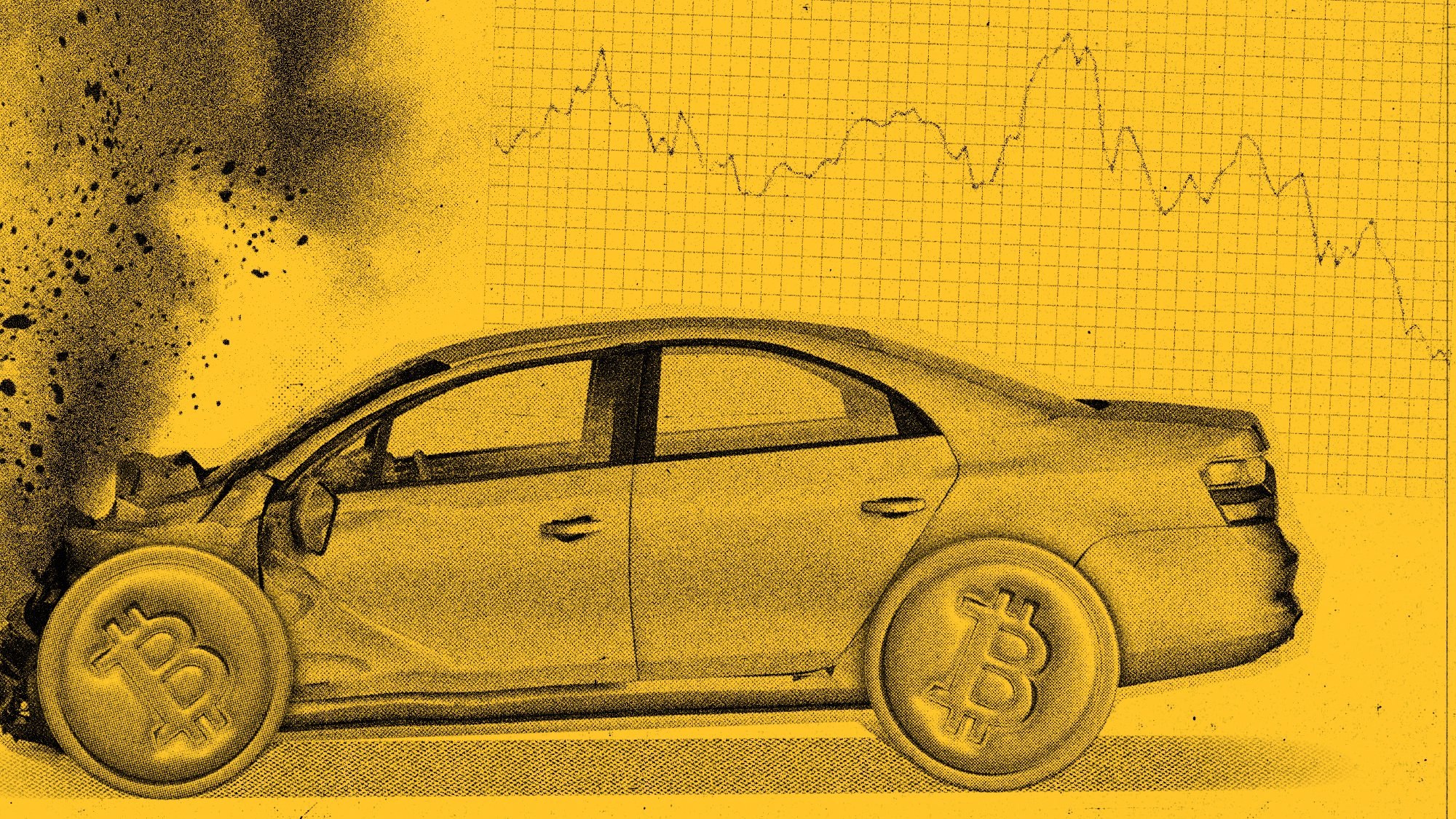 Why is crypto crashing?
Why is crypto crashing?Today's Big Question The sector has lost $1 trillion in value in a few weeks
-
 What are stablecoins, and why is the government so interested in them?
What are stablecoins, and why is the government so interested in them?The Explainer With the government backing calls for the regulation of certain cryptocurrencies, are stablecoins the future?
-
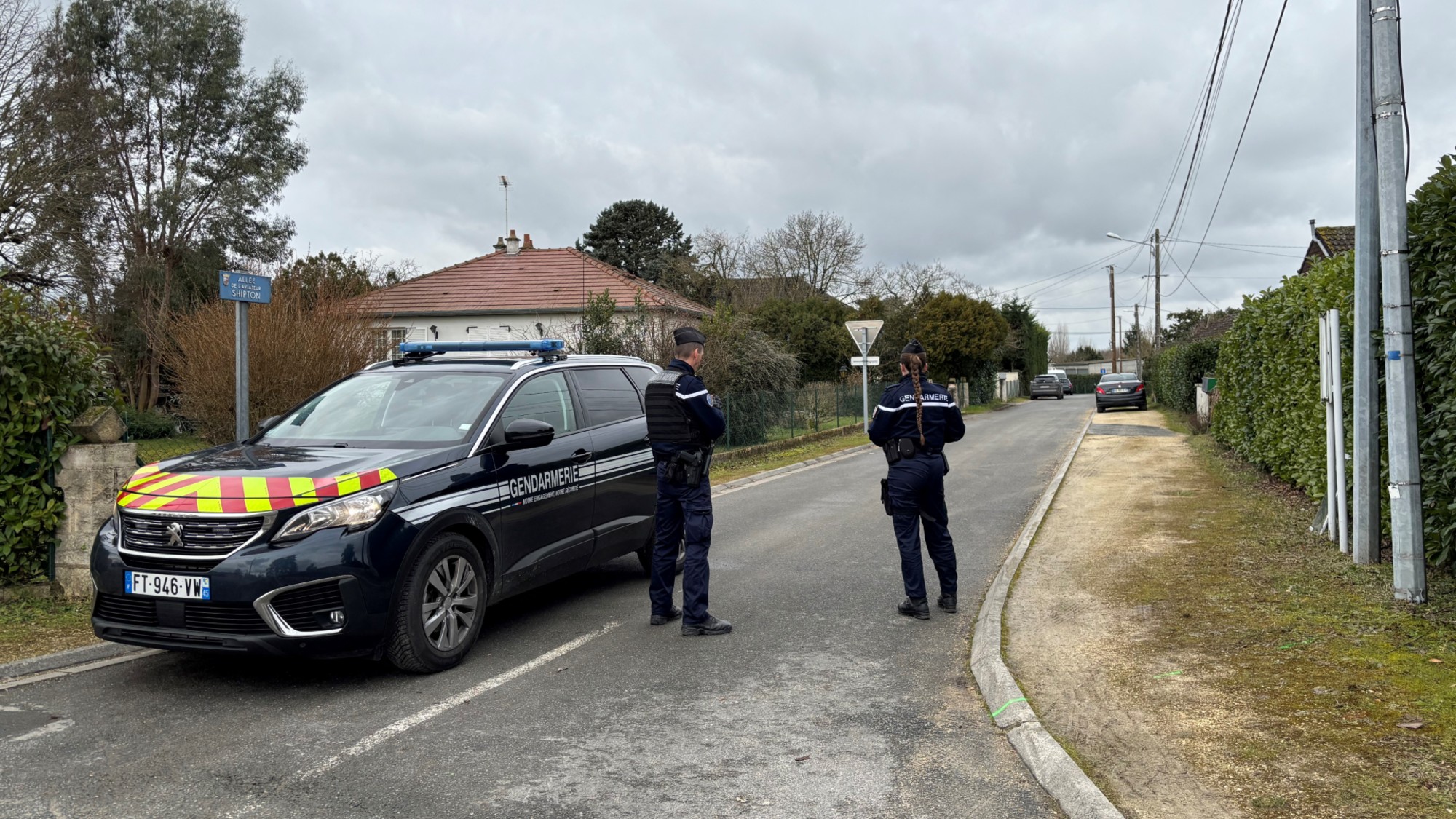 'Wrench attacks' are targeting wealthy crypto moguls
'Wrench attacks' are targeting wealthy crypto mogulsThe Explainer The attacks are named for physical coercion that can be used to gain crypto passwords
-
 Crypto firm Coinbase hacked, faces SEC scrutiny
Crypto firm Coinbase hacked, faces SEC scrutinySpeed Read The Securities and Exchange Commission has also been investigating whether Coinbase misstated its user numbers in past disclosures
-
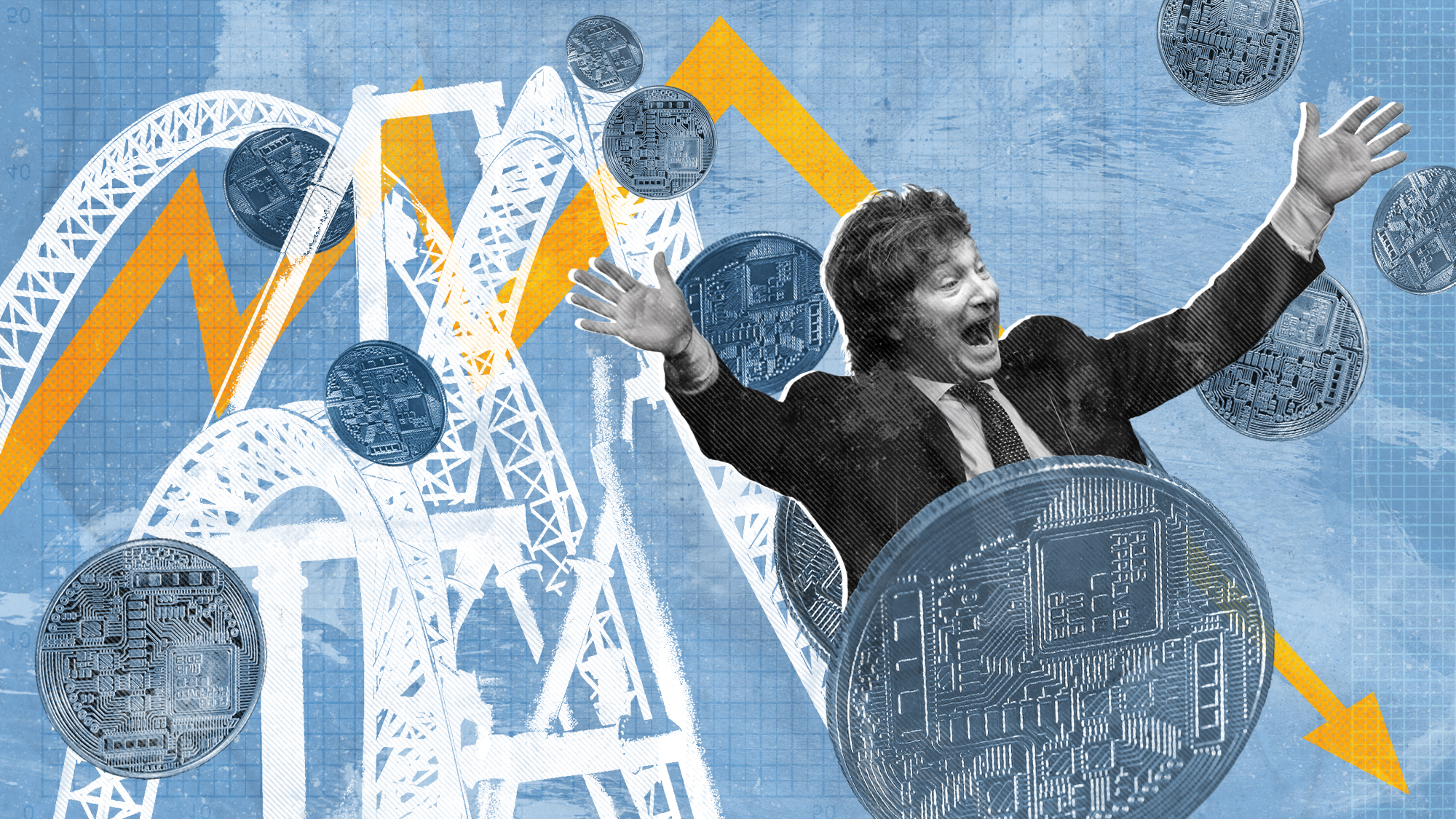 Javier Milei's memecoin scandal
Javier Milei's memecoin scandalUnder The Radar Argentinian president is facing impeachment calls and fraud accusations
-
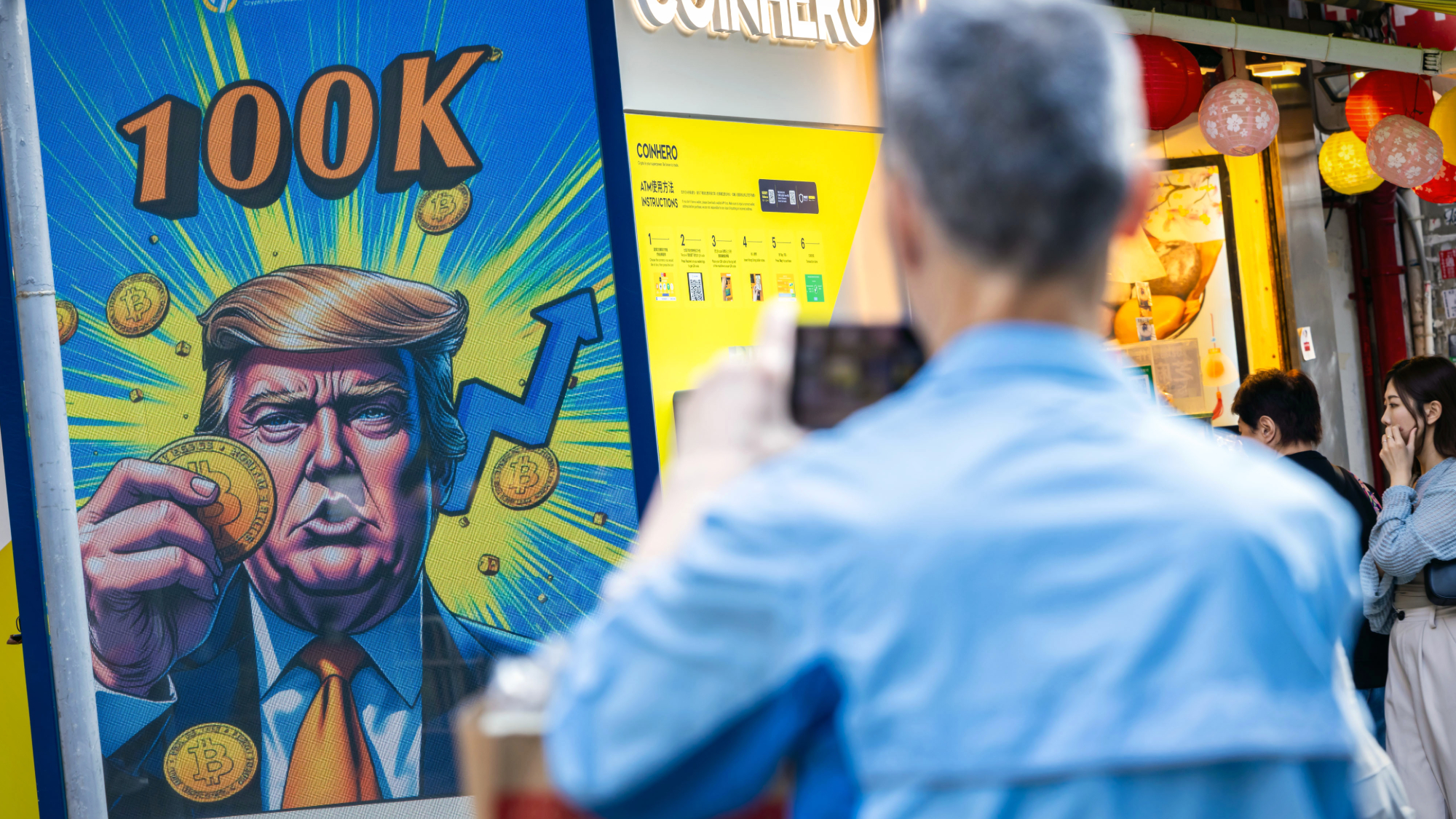 Bitcoin surges above $100k in post-election rally
Bitcoin surges above $100k in post-election rallySpeed Read Investors are betting that the incoming Trump administration will embrace crypto
-
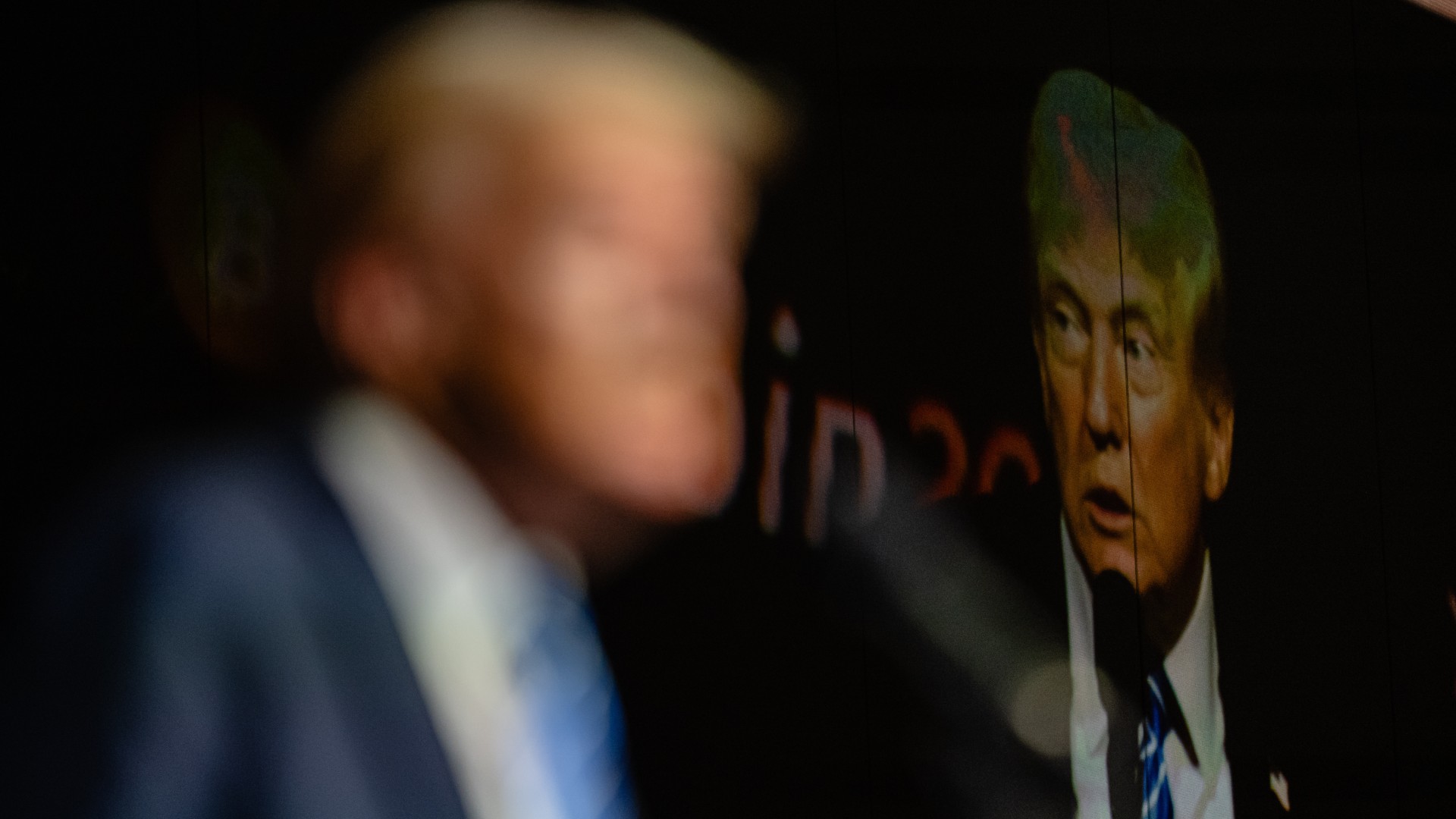 Donald Trump's bitcoin obsession
Donald Trump's bitcoin obsessionThe Explainer Former president's crypto conversion a 'classic Trumpian transactional relationship', partly driven by ego-boosting NFTs
-
 Is bitcoin back?
Is bitcoin back?Talking Point World's most popular cryptocurrency looks set to hit record highs in 2024 but is 'not for the faint-hearted', experts say